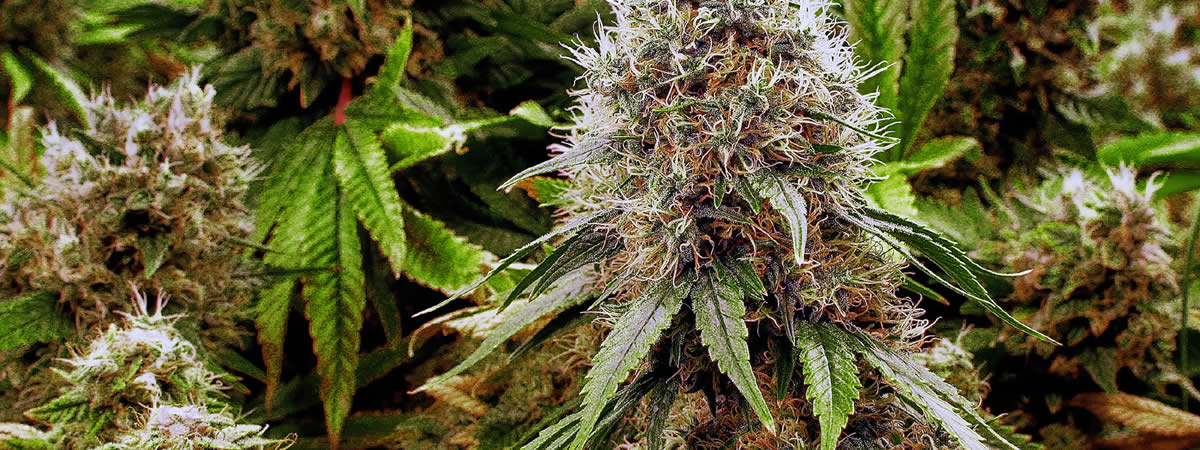A Brief Legal Examination of Arizona Recreational Marijuana

After years of failed attempts to legalize marijuana in the Grand Canyon State, voters have spoken. Over 60% of the ballots cast in the 2020 election were in favor of Proposition 207. Once effective, the law will be known as the Smart and Safe Arizona Act (SSAA).
Proposition 207 decriminalizes the possession and recreational use of marijuana for adults age 21 and over, making Arizona the 13th state to legalize marijuana. Proposition 207 also addresses other issues relating to Arizona's legalization of marijuana, including criminal record expungement and licensing for marijuana dispensaries.
The Effective Date of Proposition 207
When the election results are certified on November 30, 2020, Proposition 207 becomes law. Adults age 21 and over may then possess up to an ounce of cannabis, with no more than five grams in a concentrated form (extracts). An individual can also grow up to six marijuana plants and no more than twelve in a house with more than one adult. Plants must be stored out of public view in a closed, lockable area, such as a greenhouse.
Purchasing Marijuana in Arizona
Under Proposition 207, Arizona's Department of Health Services must accept medical dispensaries' applications and issue licenses to qualified dispensaries within 60 days. Cannabis users without medical marijuana cards can likely begin purchasing marijuana in March 2021. If the Department of Health Services (DHS) does not issue recreational licenses by April 5, medical dispensaries in good standing may sell cannabis to adults while awaiting licensing.
Operational Dispensaries in Arizona
There are approximately 120 licensed medical marijuana dispensaries in Arizona, with about ten remaining licenses available. Under Proposition 207, DHS may issue licenses to counties where there currently are fewer than two dispensaries. 'Social equity' licenses will also be permitted, bringing the number of state-approved dispensaries to approximately 160.
Social Equity Licenses
Proposition 207 establishes Arizona's Social Equity Ownership Program, which permits the state to grant licenses to "individuals from communities disproportionately impacted by the enforcement of previous marijuana laws." DHS must interpret this rule and set guidelines for determining who can apply for one of the 26 available social equity licenses. DHS has six months from the date it establishes the program guidelines to issue these licenses.
Medical Marijuana Dispensary Products
Arizona dispensaries can continue to offer many of the same marijuana products, but there will be limits under the SSAA. The potency of edibles will be limited to 10 mg of tetrahydrocannabinol (THC) per serving and 100 mg per package. Certain marijuana products for medical patients are significantly stronger and will remain available for sale to those patients only.
Unlike current regulations, Proposition 207 prohibits any edibles from being shaped like a "human animal, insect, fruit, toy, or cartoon. Dispensaries may not sell or imitate any marijuana products that resemble products marketed to children.
Arizona's Tax on Marijuana
Proposition 207 creates an excise tax of 16% on recreational marijuana, in addition to existing state sales taxes. The tax is estimated to generate $300 million in revenue each year. The money will be distributed first to DHS to cover the costs of administering the new law. Any remaining funds will go to law enforcement and Arizona's community colleges.
Driving Under the Influence of Marijuana
Driving, flying, or boating while impaired remains illegal under Proposition 207. However, under the new law, testing positive for marijuana metabolites does not prove that a person is impaired. This revises Arizona's current law permitting a person to be convicted of a DUI for merely having cannabis metabolites in their system.
When the SSAA becomes effective, law enforcement will have to demonstrate that a driver was observably impaired in addition to testing positive for marijuana metabolites. Evidence of impairment will likely continue to include erratic driving, disregarding traffic laws, and failing roadside impairment tests.
Expunging Felony Marijuana Convictions
Effective July 12, 2021, individuals arrested, charged, or convicted of possessing less than two and a half ounces of marijuana or not more than 12.5 grams of concentrate may petition an Arizona court for expungement of their criminal record. Anyone convicted of having marijuana paraphernalia or six or more marijuana plants may also request an expungement.
Proposition 207 is not clear on how the courts will handle expungement petitions. Still, the consensus among legal scholars is that if the state agency that prosecuted the crime cannot prove by 'clear and convincing evidence' that the crime does not qualify for expungement, the court must grant the petition. Clear evidence would include proof that the conviction was for possessing more than two and a half ounces or some other violation not covered under the Proposition.
Recreational Use of Marijuana in Arizona Workplaces
Proposition 207 'does not restrict an employer's right to maintain a drug and alcohol-free workplace or affect their ability to have workplace policies restricting marijuana use by employees or prospective employees.' Even after the SSAA takes effect, employers can continue to test their employees for marijuana metabolites, which can appear in urine a month or more after marijuana has been ingested. Therefore, an employee could still be fired for marijuana use even if they are not actually impaired on the job. Under Arizona law, workers with active medical marijuana licenses will still be protected from job termination for marijuana use unless they are impaired or caught possessing marijuana in the workplace.
Prohibitions on Ingesting Marijuana in Public
Proposition 207 does not expand the available smoking locations for marijuana users. Smoking in public places, including parks and public transportation, remains illegal in Arizona. However, licensed medical marijuana users may consume edibles in public if they are not driving or performing any activity that requires them to be unimpaired.
Arizona's Criminal Sanctions for Marijuana Possession
Even though recreational users can now possess up to an ounce of marijuana under Proposition 207, the penalties for larger amounts remain in effect.
Possession of less than two pounds for personal use remains a Class 6 felony in Arizona and carries a minimum sentence of 4 months to 2 years in jail and a $1000 fine. A person caught possessing 2 to 4 pounds of marijuana could face a Class 5 felony charge, punishable by a sentence of 6 months to 2.5 years and a minimum fine of $1000.
Marijuana and Minors
The SSAA will continue to prohibit minors from using marijuana. A minor caught in Arizona with less than an ounce may be required to attend four hours or drug counseling and pay up to a $100 fine for a first offense. Penalties increase with subsequent offenses, and a third-time offender faces Class 1 misdemeanor charges punishable by up to 6 months in jail.
Arizona's Marijuana Laws Continue to Evolve
Proposition 207 ushered in a new era for marijuana users in Arizona. Adults who use recreationally will no longer face criminal charges. However, it is still unclear how petitions for expungements of criminal convictions will be processed, and the Arizona Department of Health Services has yet to determine who is eligible for social equity licenses to dispense marijuana. It may take some time after the Smart and Safe Arizona Act goes into effect for the state to fully define and implement the new law.

















